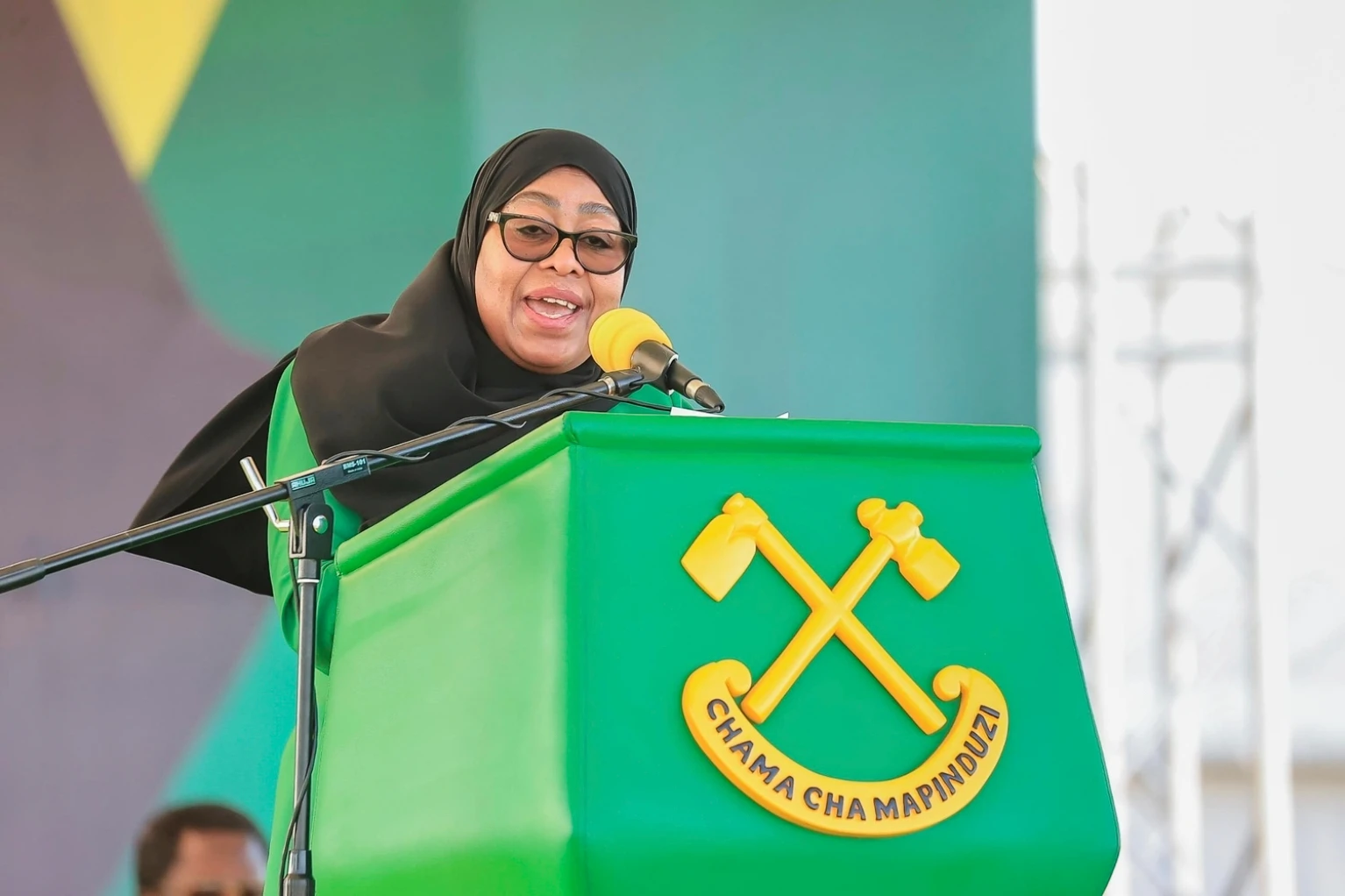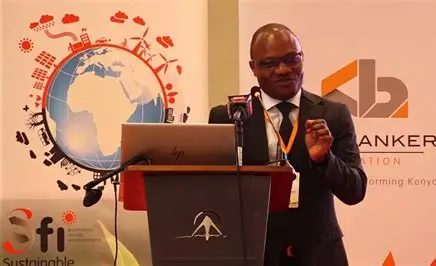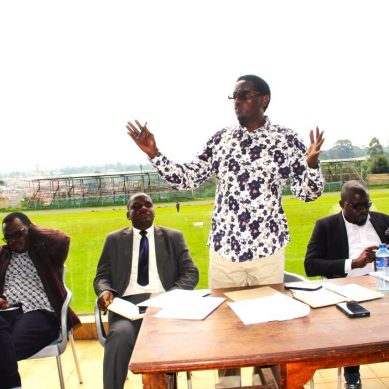
African governments could save up to $150 billion (Ksh19.5 trillion) annually lost through inefficiencies in public service delivery by adopting Artificial Intelligence (AI) as a strategic enabler for governance and economic transformation, according to Harun Katusya, a senior consulting expert and lead organiser of the upcoming Africa Premier AI Conference (APAIC2025).
$150 billion or Ksh19.5 is nearly triple the budgets of the eight member states of the East African Community (EAC) economic bloc.
“African governments serve 1.4 billion people using largely inefficient and outdated systems. Citizens are often forced to wait days for basic services, while over 40 per cent cannot access them at all. AI offers a historic opportunity to reverse this trend,” said Katusya ahead of APAIC2025.
Despite the rosy picture given by the Katusya, the technology that mimics human brain laden with social, economic and political risks.
A 2023 status report Kenya’s Strathmore University warns of inevitable upsets.
“Artificial intelligence technologies will profoundly impact all areas of life that require human intellect and interaction in African countries. Businesses and institutions may employ AI, in particular, to personalise tasks, optimise processes, encourage innovations, and empower and supplement staff operations. Africa is already leveraging AI: for example, Togo is utilising AI systems to distribute social funds; Zambia to counter disinformation and misinformation during the electioneering periods and Kenya harnessing machine learning in agriculture and education,” says The State of AI in Africa Report 2023 prepared by the Centre for Intellectual Property and Information Technology Law (CIPIL).
The first-of-its-kind conference – scheduled for August 25-28, 2025 at Sarova Whitesands Beach Resort, Mombasa – will bring together policymakers, technologists, business leaders and development partners under the theme “Africa First: Harnessing AI for Public Good, Wealth Creation and Youth Empowerment.”
Governments that have already adopted AI are demonstrating remarkable gains in efficiency and citizen satisfaction such as AI-powered chatbots are now able to resolve up to 80 per cent of citizen queries instantly, predictive analytics have helped cut service waiting times by over 60 per cent and workflow automation is eliminating up to 70 per cent of bureaucratic delays.
“Unfortunately,” says The State of AI in Africa Report 2023, “harmful AI use has also been observed, for example, in Libya through the deployment of autonomous weapon systems and in Zimbabwe through facial recognition surveillance systems. It is also good to note that with a few exceptions such as South Africa, Nigeria, Ethiopia, Kenya, Zimbabwe, Togo, Libya and Ghana, AI applications have not yet been widely adopted throughout Africa, with most African nations lacking the necessary elements required for technology adoption in the form of infrastructure, data.”
Katusya cited Rwanda’s AI-enabled e-government services where over four million citizens now access more than 100 digital public services from their homes, reducing service turnaround time by over 90 per cent. Similarly, Kenya’s digital government has onboarded over 300 services onto an e-citizen online platform, with a multilingual AI chatbot cutting down walk-in traffic by 60 per cent.
For this to happen, the Strathmore University report says there has to be increased sustainable adoption of AI in Africa. The report adds that governments have to create positive ecosystems among stakeholders, such as policymakers, research institutions, businesses, start-ups and government agencies, to ensure the sustainability of the emerging technology. Notably, it says, AI adoption in Africa has encountered various challenges that stakeholders must take into account to enable a conducive environment for sustainable use, including; ill-equipped policy frameworks, ethics, skills and capacity, and lack of a structured data ecosystem.
“Proactive African governments – including Kenya, Uganda, Rwanda and South Africa – are now using AI not just to digitise services but to rethink how government works for the people,” Katusya explained.
The adoption of AI extends beyond service delivery into the core of governance real-time sentiment analysis now informs responsive policymaking – AI enables inclusive governance through real-time citizen engagement, multilingual access, and data-driven public participation; smart budget allocation tools optimise spending; impact simulation models allow leaders to test policy outcomes before implementation.
“AI offers unique opportunities for evidence-based governance. It enables more inclusive policies and better fiscal management,” Katusya noted.
CIPIL notes that there is a scarcity of pertinent policies that prioritise AI development and its application in Africa while addressing potential social repercussions.
It says, “African countries such as Mauritius, Egypt, Zambia, Tunisia, and Botswana, have created National AI Programs, and others such as South Africa, Nigeria, Ghana, and Kenya have approved Data Privacy Legislation that may be used to govern AI technology. However, all the policy frameworks are in their infancy, leaving AI deployment largely unregulated. Strategy on AI deployment techniques is required in African nations, similar to those in first world nations such as China, the United States, and the European Union.
A key pillar of APAIC2025 is youth empowerment through AI. Delegates will explore how young Africans can harness AI to create scalable start-ups; enter the competitive global job markets; build Africa-focused AI tools for healthcare, education, agriculture, and creative industries.
“Our youth must be equipped not just to consume AI but to create with it. APAIC2025 will be a launch-pad for Africa’s next generation of AI innovators,” Katusya said.
AI is also transforming agriculture – Africa’s largest employer – by turning mobile phones into powerful farming tools satellite-based crop monitoring and SMS-driven soil diagnostics now guide decision-making for smallholder farmers; AI-powered weather forecasts with up to 95 per cent accuracy reduce risks from climate variability; farmers can now access digital credit scoring and fair market prices through AI platforms, increasing productivity and income.
“Africa holds 60 per cent of the world’s uncultivated arable land, but many farmers remain locked out of productivity. AI is now bridging that gap,” Katusya pointed out.
While AI has great potential, it also presents significant ethical challenges for governments, developers and users. These include accountability, data bias, transparency, and socio-economic concerns such as social inequality.
“For example, AI has been shown to reproduce socio-economic disparity when utilising biased data. Additionally, some complicated algorithms are used to create AI systems, jeopardising explainability, trust and transparency. The practice of carrying out surveillance using AI is also a major ethical issue affecting African data subjects. These ethical concerns must be addressed by cementing the rights of data subjects and creating ethical AI frameworks to promote accountability among developers and across governments.
APAIC2025 – The Africa Premier AI Conference is a high-level convening focused on advancing Africa’s position in the global AI landscape through public sector innovation, private sector collaboration and youth-centred solutions. The event is organized around actionable outcomes, policy recommendations, and investment opportunities for AI-driven transformation.








